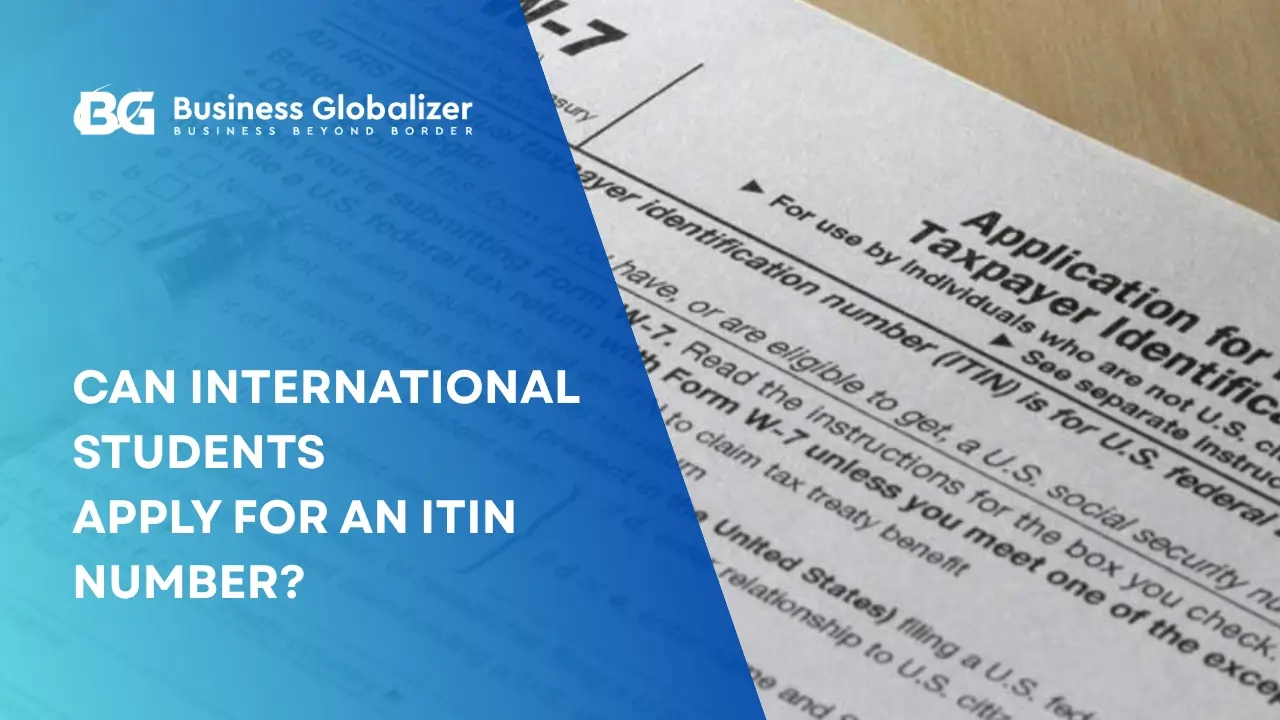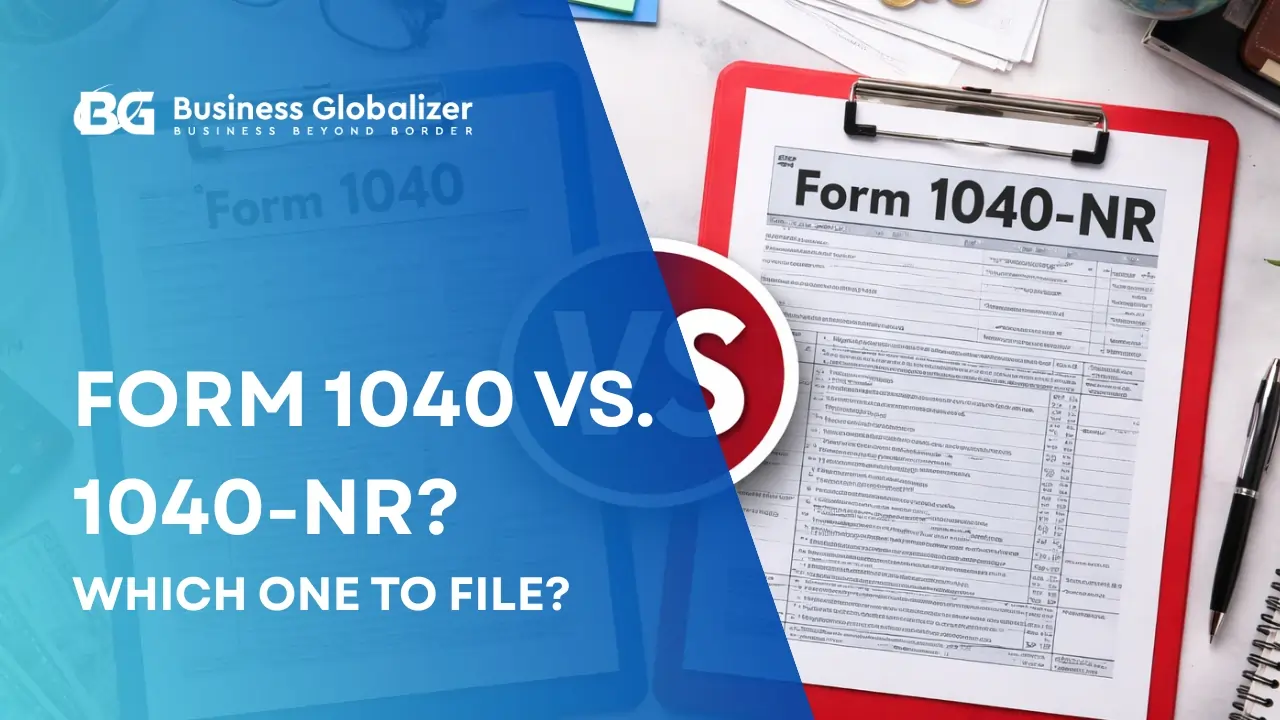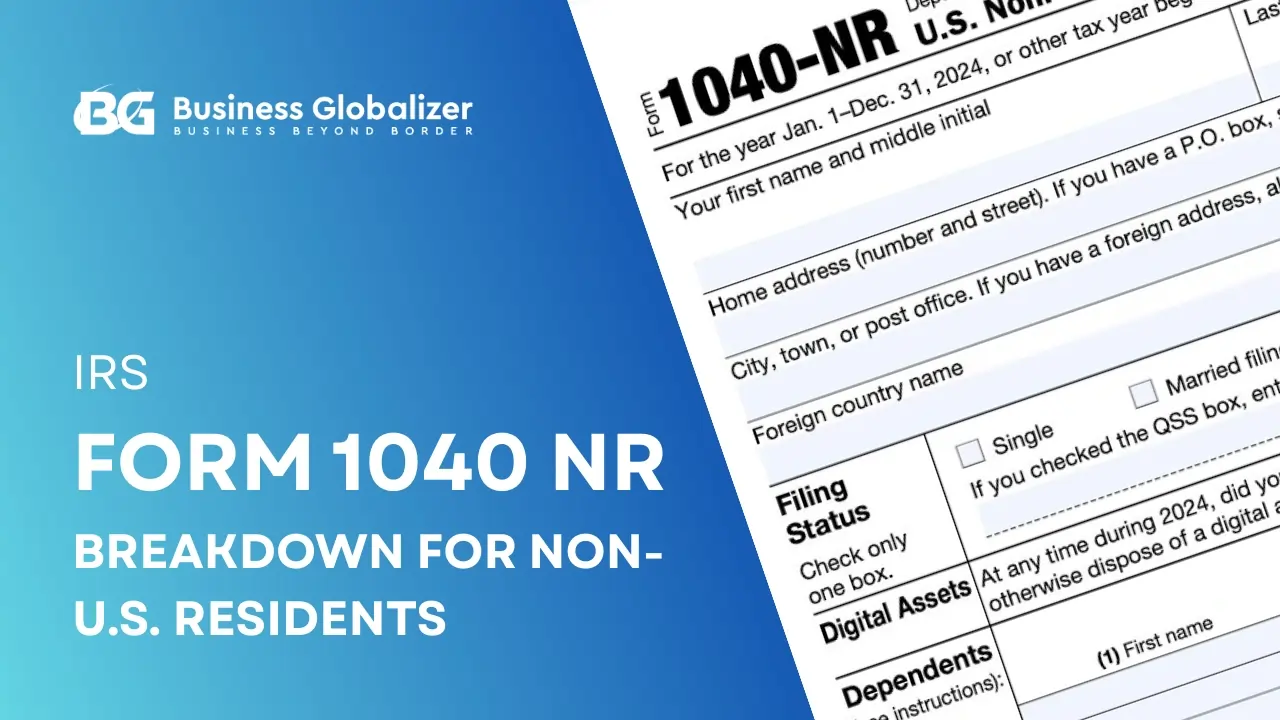Let’s paint a familiar campus moment… you’re in the international student office, half awake, nursing a coffee, while someone from the tax department drones on about “ITINs.”
Suddenly, pens start flying. Everyone is writing down everything like it’s the final exam of adulthood. You subtly lean over to your friend and whisper, “Wait… do we actually need that?”
That’s usually the moment it hits you: studying in the U.S. isn’t just about lectures, GPAs, or keeping your visa status clean. It’s also about those sneaky little forms that decide whether your scholarship shows up, your stipend clears, or your tax refund actually lands in your bank account.
So, let’s make sense of it. What exactly is an ITIN for international students, who truly needs it, and how can you get one without losing your sanity in IRS paperwork?
What Is an ITIN and Why Does It Even Exist?
Think of it as your tax ID in the US, a nine-digit number from the IRS (Internal Revenue Service) made for people who need to file taxes but don’t qualify for a Social Security Number (SSN).
That means if you’re an international student, researcher, or scholar earning money, getting a stipend, or claiming a tax treaty benefit, the ITIN is how the U.S. tax system recognizes you. It’s not just paperwork; it’s your official identity in the tax world.
When Do International Students Need an ITIN?
Here’s the truth: not every international student needs an ITIN.
If you’re not earning or receiving any taxable income in the U.S., you can probably skip it for now. But the moment money, taxes, or scholarships enter the picture, it’s time to pay attention.
Take a look below to learn when international students need an ITIN:
1. You Receive a Scholarship, Fellowship, or Stipend
If part of your funding covers living expenses (not tuition) and is taxable, you’ll need an ITIN number to report it to the IRS.
Most universities, from Yale to Michigan, will even ask for it before disbursing stipends or issuing tax forms.
Example: You’re on an F1 visa and get a $12,000 living stipend. The IRS expects you to report it, and for that, you’ll need an ITIN.
2. You’re a Spouse or Dependent on a U.S. Tax Return
If you’re married to a U.S. citizen or resident alien and want to file jointly, or you’re being claimed as a dependent, the IRS will require you to have an ITIN.
No exceptions. Even dependents outside the U.S. need one for proper tax reporting.
3. You Need to File a U.S. Tax Return (Even Without Income)
Many F1 and J1 students are surprised to learn they must still file forms like Form 8843 to stay compliant. An ITIN for international students acts as your tax ID on that return, confirming that you’re reporting under the right visa status.
4. You Own or Sell Property in the U.S.
If you’ve bought or sold a house or apartment while studying or interning in the U.S., that transaction triggers a reporting requirement. The IRS uses your ITIN to track related income or capital gains, even if you’re no longer living in the States.
5. You Started a U.S. Business or LLC
This one’s not as common, but it happens. Especially among entrepreneurial F1 and J1 students. If you’ve registered a small LLC or online business in the U.S., you’ll need an ITIN number for F1 students (or any nonresident) to handle tax filings, receive payments, or connect your business to platforms like PayPal or Stripe.
Important Note: If you’re eligible for a Social Security Number (SSN) because you’re working on campus, you don’t need an ITIN; the SSN covers your tax identity instead.
If none of those apply, you can probably hold off; at least until your situation changes.
How to Apply for an ITIN as an International Student
Now that we’ve cleared when you need it, let’s get into how to apply, the part everyone secretly overcomplicates.
Let’s look at the following step-by-step process:
Step 1: Complete Form W-7
This (Form W-7) is the official ITIN application form. You’ll check the reason for applying, most students choose “Nonresident alien required to obtain ITIN to claim tax treaty benefit” or “Nonresident alien required to file a U.S. tax return.”
Step 2: Prepare Your Supporting Documents
You’ll need to include some ID and proof that you’re legally residing in the U.S.
Commonly:
- Your passport (either the original copy or a certified one).
- Your U.S. visa page (like F-1, J-1, or another valid category).
- Your Form I-20 or DS-2019, showing you’re a student or exchange visitor.
- Proof of income, such as a scholarship letter or W-2 form, if you have one.
- A federal tax return, unless you qualify for an exception; for instance, if your scholarship is tax-exempt under a treaty.
Step 3: Submit Your Application
You can apply in three ways:
- By Mail: send to the IRS address listed on Form W-7 instructions.
- In Person: at a U.S. IRS Taxpayer Assistance Center.
- Through a Certified Acceptance Agent (CAA): easiest if you’re outside the U.S. A CAA (like our team at Business Globalizer) can verify your documents without mailing originals.
Common Mistakes That Get Student ITIN Applications Rejected
Even bright students get this wrong sometimes, and get rejected. Don’t worry, an ITIN application rejection doesn’t mean the end of the world! You can always re-apply! But let’s not go that far in the first place. Better to be safe than sorry, right?
So, here’s the mistakes you should avoid:
- Sending photocopies of your passport instead of certified copies.
- Forgetting to attach your federal tax return or proof of income.
- Selecting the wrong reason code on Form W-7.
- Using an expired visa or passport.
- Missing signature or incomplete information on Form W-7.
Pro Tip: Applying from outside the U.S. or feeling lost with Form W-7? Get help from a Certified Acceptance Agent (CAA). They’re approved by the IRS to handle the process for you and save you from those small mistakes that can turn into big delays.
Documents Checklist: ITIN for International Students
Keep it simple. You’ll usually need:
- Valid passport (certified or original)
- F-1 or J-1 visa
- I-20 or DS-2019 form
- Form W-7 (filled and signed)
- Proof of income (if applicable)
- Federal tax return, unless exempt
Double-check that all documents are current and match your details exactly, the IRS is strict about consistency. Also, always make sure your university DSO reviews your docs before you mail them.
Important Note: Don’t stress if you haven’t filed a tax return yet. Many international students get their ITIN before earning any taxable income. In that case, just include a simple letter from your university confirming your scholarship, fellowship, or assistantship eligibility, that usually does the job.
It’s just the IRS’s way of checking that you actually need the ITIN; not a problem, just paperwork.
How Long Does It Take to Get ITIN Approval?
To get an ITIN approval, it usually takes between 7–11 weeks.
If you applied during tax season or from abroad, expect it to take a bit longer.
Once approved, you’ll receive your ITIN by mail, keep that letter safe, it’s your official record.
Quick Tips Before You Apply
- Talk to your school’s international office first. They often have ITIN info sheets or letters that make your application stronger. A quick 5-minute chat can save you 5 weeks of delay.
- Don’t mail your passport if you’re abroad. Use a Certified Acceptance Agent (CAA), they’re IRS-approved and can verify your ID without you risking your only travel document.
- Double-check your details. Your Form W-7, visa, and passport must tell the same story; one wrong date or spelling can turn into an “ITIN application rejected” letter faster than you think.
Small prep steps now will save you a mountain of stress later. And yes, that refund or stipend will reach you sooner.
Business Globalizer: Making ITIN Easy for International Students
Let’s be honest, applying for an ITIN while juggling student life can be confusing. That’s where Business Globalizer steps in.
Our IRS-Certified Acceptance Agent (CAA) makes sure you get it right the first time.
He and his team will personally go through your documents, fill out Form W-7 right beside you, and make sure every detail fits IRS standards. Whether it’s your first try or a do-over after the IRS said no, they’ll get your ITIN filed the right way. Calmly, clearly, and without all the stress.
Closing It Out
So, can international students apply for an ITIN number? Absolutely. And many already do. It’s what keeps you on the right side of taxes, and lets you easily claim scholarships, stipends, or refunds without the headache.
And hey, if it all feels a bit too much, remember, you don’t have to figure it out by yourself. At Business Globalizer, we properly and compliantly get ITIN for International students. So, they can concentrate fully on their studies only.
Frequently Asked Questions about ITIN for International Students
Can international students apply for an ITIN?
Answer: Yes, absolutely. If you’re an international student who can’t get a Social Security Number but still need to file taxes, claim a scholarship, or report income in the U.S., you’ll need an ITIN instead.
What documents are required for ITIN for international students?
Answer: You’ll need a few key papers: your passport, student visa, and I-20 or DS-2019 form, along with a filled-out Form W-7. If you’ve earned any taxable income, just attach your tax return or scholarship letter with it.
How long does it take to get an ITIN number for F1 students?
Answer: Typically 7–11 weeks. It may take longer during the tax season or if you apply from abroad.
What happens if my ITIN application is rejected?
Answer: Don’t panic. It happens. Really. Just check the rejection letter, fix what went wrong (like a missing document or an incorrect reason code), and send it again. Simple as that.
Can Business Globalizer help international students get an ITIN?
Answer: Absolutely. Our IRS-approved Certified Acceptance Agent (CAA) personally guides students from any country through the ITIN process. So your application is done right, stress-free, and accepted without the back-and-forth.






